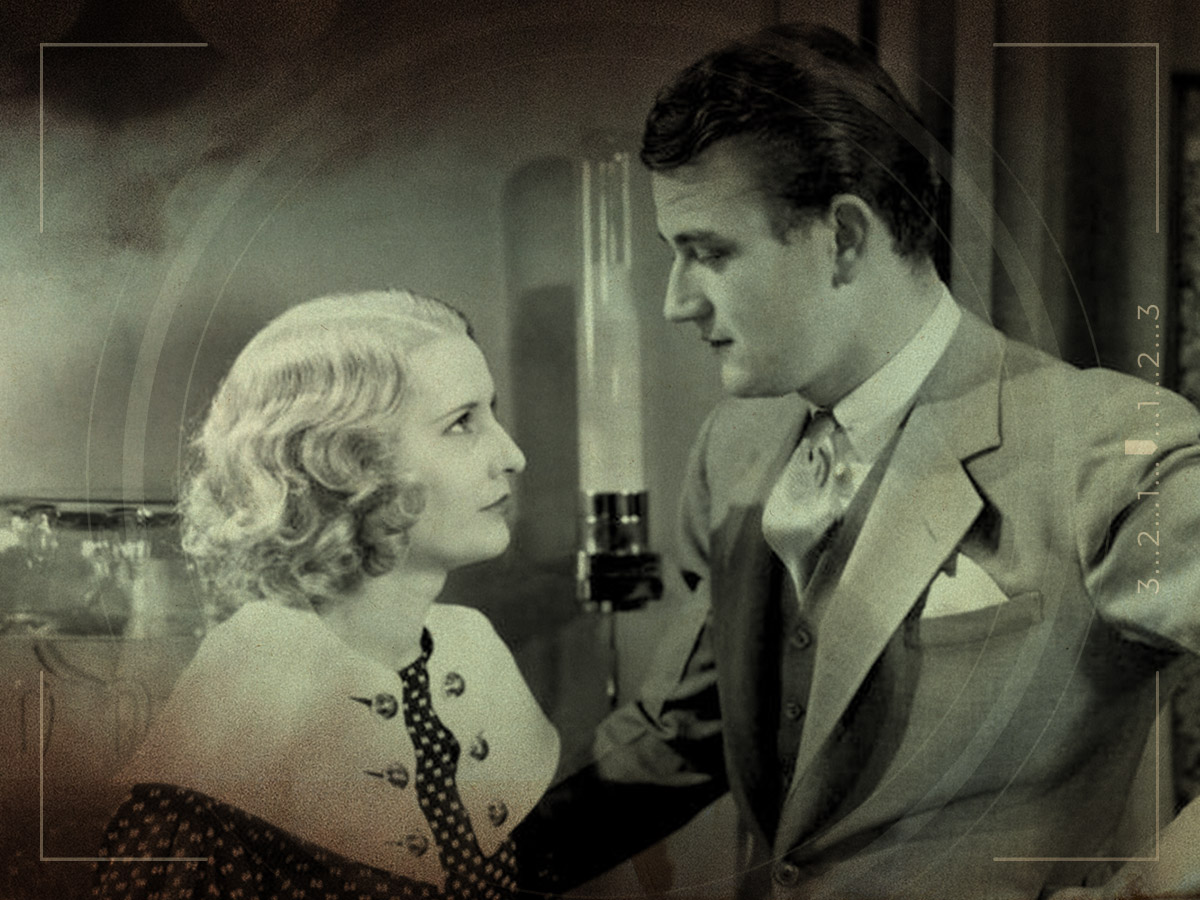(Credits: Far Out / MUBI)
Before the Hays Code arrived in 1934 and, for several decades, banned everything from interracial relationships to nudity on screen, there was a glorious time in Hollywood known as the pre-code era. This was a period when filmmakers were allowed to explore taboos, resulting in movies about defiant women like Baby Face, which seemed to hold a rather progressive view of sexuality and gender.
Released in 1933 and directed by Alfred E Green, the film starred Barbara Stanwyck as Lily, a young woman who has been pimped out by her own father since she was 14. Now in her 20s, she leaves home following her father’s death and sets out for a new life in New York. However, without money or connections, Lily has to get creative, and when an old male friend tells her that using her body as a sexual weapon will increase her chances of financial stability, she decides to do just that.
“A woman, young, beautiful, like you, can get anything she wants in the world,” he says. “Because you have power over men! But you must use men! Not let them use you. You must be a master! Not a slave. Look, here, Nietzsche says, ‘All life, no matter how we idealize it, is nothing more nor less than exploitation.’ That’s what I’m telling you! Exploit yourself! Go to some big city where you will find opportunities. Use men! Be strong! Defiant! Use men! To get the things you want”. For 1933, his speech was groundbreaking.
But is the film as feminist as it is often labelled? Lily first utilises this “use men” approach when a railroad worker threatens to report her for travelling without a ticket. She looks at him seductively, and we’re left to assume that Lily pays for her fare by having sex with the stranger. She taps into his weakness – sex – and it works terrifically. From here, she begins working at a bank, continually embarking on affairs with various staff members in order to climb the ranks, including a young John Wayne.
While the film is not explicit by any means (sex is frequently and very heavily implied), the openness with which attitudes towards sex are presented – with Lily taking control of her own narrative via means of seduction – is certainly something that cements her as one of the pre-code era’s most determined and sexually-liberated women. In an act of resistance against the men she has been forced to sleep with since she was a teenager, Lily ensures that she is now in charge of who she goes to bed with, although we’re left to question how many of these men she’d willingly pursue if not for the greater goal of financial security.
At times, it’s hard to figure out whether the movie is trying to empower Lily or shame her because, for all of the movie’s undeniably impressive examples of a woman who wants nothing more than to make it in a male-dominated world, the end of the film seems to suggest that her promiscuity was, inevitably, not worth it. As she falls in love with the bank’s president, Courtland, and indulges in a life of luxury, she soon comes to realise what really matters in her life is true love. While she’s at first reluctant to give up her diamonds and furs, it’s Courtland’s suicide attempt – an act he commits due to Lily’s initial lack of help when he is indicted – that encourages her to realise the superficiality in her life.
Is the film equating her promiscuity to superficiality? While her acts of casual sex get her what she wants, the movie’s overall message seems to suggest that perhaps what women should really be focusing on is finding someone to settle down into a monogamous relationship with. Lily seems to be ‘punished’ when her dalliances lead to chaos within the bank and among its male staff members – to the point that Courtland almost dies.
Thus, Baby Face remains one of the era’s most interesting movies due to its complex exploration of womanhood and patriarchy, inevitably ending with a message that is hardly as progressive as the rest of the film. It’s undeniably forward-thinking in its approach to female autonomy – and of course, we have to hold Baby Face to a contextual standard – but is it really empowering to have to use your body to get what you want from men? And if this much drama comes from a woman’s promiscuity, what is the film trying to tell us about a woman’s status in a patriarchal world?
Related Topics

